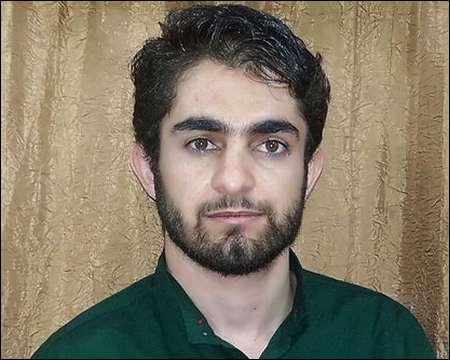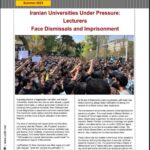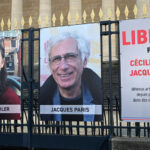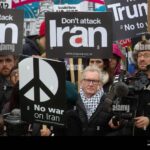
Shahram Ahmadi, aged 28, learned in October 2015 that his death sentence had been upheld by the Supreme Court. The judge overseeing the implementation of sentences in Raja’ Shahr Prison in Karaj, where he is held, has apparently told him that his execution could be carried out any moment Shahram Ahmadi says that he has not been able to obtain a copy of the verdicts against him and know the evidence and the legal reasoning on which they rest. Shahram Ahmadi was arrested in April 2009 in Sanandaj, Kordestan Province, on his way home. He has said he was shot and beaten on the street by men from the Revolutionary Guards, and taken to hospital, where he was interrogated. He spent almost three years in pre-trial detention, without access to a lawyer or his family. He has said he was tortured and otherwise ill-treated to make him “confess”: this included prolonged solitary confinement, kicking and punching and being denied his medication. He met his state-appointed lawyer for the first time at his trial before Branch 28 of the Revolutionary Court in Tehran, on 2 October 2012, which he says lasted only five minutes. He was told in April 2013 that the court had sentenced him to death for “enmity against God” (moharebeh) because of his alleged membership of Salafist groups. He has denied the charge, saying that he was targeted because of his faith.
The Supreme Court overturned the verdict in 2015 and sent his case back to Branch 28 of the Revolutionary Court in Tehran. The court resentenced Shahram Ahamdi to death. The sentence has now been upheld by the Supreme Court. No investigation into Shahram Ahmadi’s allegations of torture are known to have been carried out.
Please write immediately in English, Persian, French, Spanish or your own language:
- Urging the Iranian authorities to halt any plans to execute Shahram Ahmadi, quash his conviction and death sentence and order a retrial that complies with fair trial standards, without recourse to the death penalty;
- Urging them to conduct an impartial and independent investigation into the allegations that he was tortured and otherwise ill-treated, bring those responsible to justice and exclude from trials any evidence that may have been obtained through torture or other ill-treatment.
- Urging them to conduct an impartial and independent investigation into the allegations that he was tortured and otherwise ill-treated, bring those responsible to justice and exclude from trials any evidence that may have been obtained through torture or other ill-treatment.
PLEASE SEND APPEALS BEFORE 8 JANUARY 2016 TO:
Leader of the Islamic Republic
Ayatollah Sayed ‘Ali Khamenei
The Office of the Supreme Leader
Islamic Republic Street – End of Shahid Keshvar Doust Street
Tehran, Islamic Republic of Iran
Email: (via website http://www.leader.ir/langs/en/index.php? p=letter
Twitter: @khamenei_ir,
@Khamenei_ar (Arabic),
@Khamenei_es (Spanish).
Salutation: Your Excellency
Head of the Judiciary
Ayatollah Sadegh Larijani
c/o Public Relations Office
Number 4, 2 Azizi Street intersection
Tehran, Islamic Republic of Iran
(Subject line: FAO Ayatollah Sadegh Larijani)
Salutation: Your Excellency
And copies to:
President of the Islamic Republic of Iran
Hassan Rouhani
The Presidency
Pasteur Street, Pasteur Square
Tehran, Islamic Republic of Iran
Email: media@rouhani.ir
Twitter: @HassanRouhani (English) and @Rouhani_ir (Persian)
Salutation: Your Excellency
Also send copies to diplomatic representatives accredited to your country. Please insert local diplomatic addresses below:
Name Address 1 Address 2 Address 3 Fax Fax number Email Email address Salutation Salutation
Please check with your section office if sending appeals after the above date.
Additional Information
Shahram Ahmadi was arrested during a wave of arrest of Sunni Muslim men, mainly from Iran’s Kurdish minority, by Ministry of Intelligence officials in the western province of Kordestan in 2009 and 2010. The factual circumstances leading to these arrests and the evidence used in the men’s convictions and sentencing remain unclear to Amnesty International.
After he was arrested, on 26 April 2009, Shahram Ahmadi was held in Ministry of Intelligence detention centres in Sanandaj and Zanjan for 33 months. He was then taken to Section 350 of Tehran’s Evin Prison and eventually to Raja’i Shahr Prison. During his pre-trial detention, he was not allowed access to a lawyer and was held in solitary confinement for prolonged periods. Shahram Ahmadi has said that his interrogators tortured and otherwise ill-treated him, by kicking and punching him, denying him food and medication, depriving him of sleep, subjecting him to electric shocks and making threats against his family members. He has also said that he was interrogated for anything up to 20 hours a day.
Shahram Ahmadi has said that he was targeted solely because he practiced or promoted his Sunni faith, such as taking part in Sunni religious seminars and distributing Sunni reading materials and CDs.
Shahram Ahmadi’s brother, Bahram Ahmadi, was arrested four months after him, on 19 September 2009. He was held in Ministry of Intelligence detention centres in various cities for 17 months, during which he is believed to have been tortured or otherwise ill-treated. He and nine other Sunni men from Iran’s Kurdish minority were sentenced to death in February 2011 by Branch 28 of the Revolutionary Court in Tehran, for “enmity against God”. His death sentence was upheld by the Supreme Court, and he was executed on 27 December 2012. According to his family, he was 17 when he was arrested.
Under international human rights law and standards, people who risk facing the irreversible punishment of death are entitled to the strictest observance of all fair-trial guarantees. They must be presumed innocent until their guilt has been proven based upon clear and convincing evidence leaving no room for an alternative explanation of the facts, in strict application of the highest standards for gathering and assessing evidence. These guarantees also include the right to counsel of choice at all stages of criminal proceedings including pre-trial detention, questioning and investigation. The UN Human Rights Committee has stated that “the imposition of a sentence of death upon conclusion of a trial in which the provisions of the [International] Covenant [on Civil and Political Rights] have not been respected constitutes a violation of article 6 of the Covenant”. The UN Special Rapporteur on Extrajudicial, Summary or Arbitrary Executions has underlined that “it is arbitrary to impose the death penalty where the proceedings do not adhere to the highest standards of fair trial.”
Amnesty International opposes the death penalty in all cases without exception, regardless of the nature or circumstances of the crime, the guilt, innocence or other characteristics of the offender or the method used by the state to carry out the execution. The death penalty violates the right to life as proclaimed in the Universal Declaration of Human Rights. It is the ultimate cruel, inhuman and degrading punishment.
Name: Shahram Ahmadi
Gender: m













 Posted in
Posted in 











